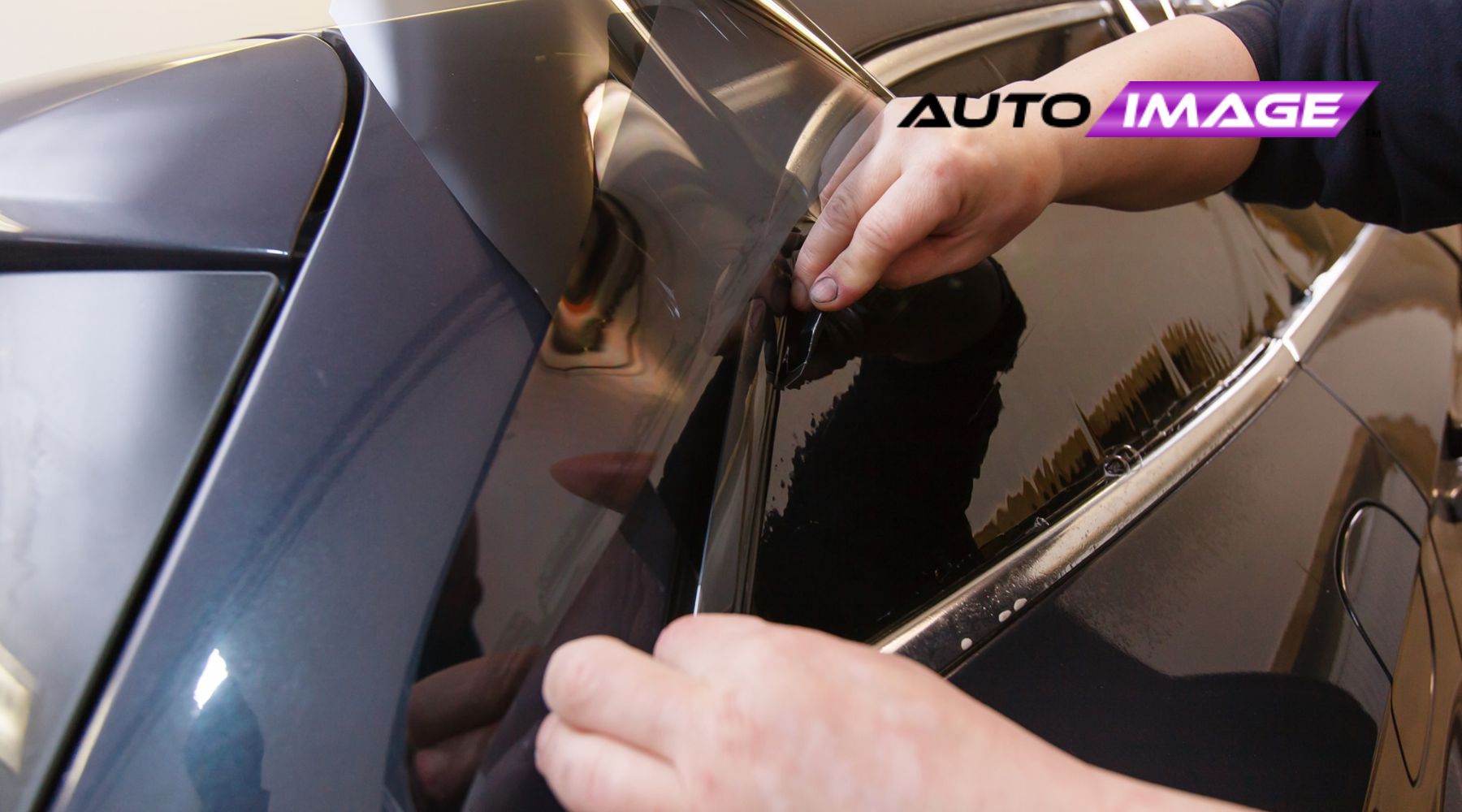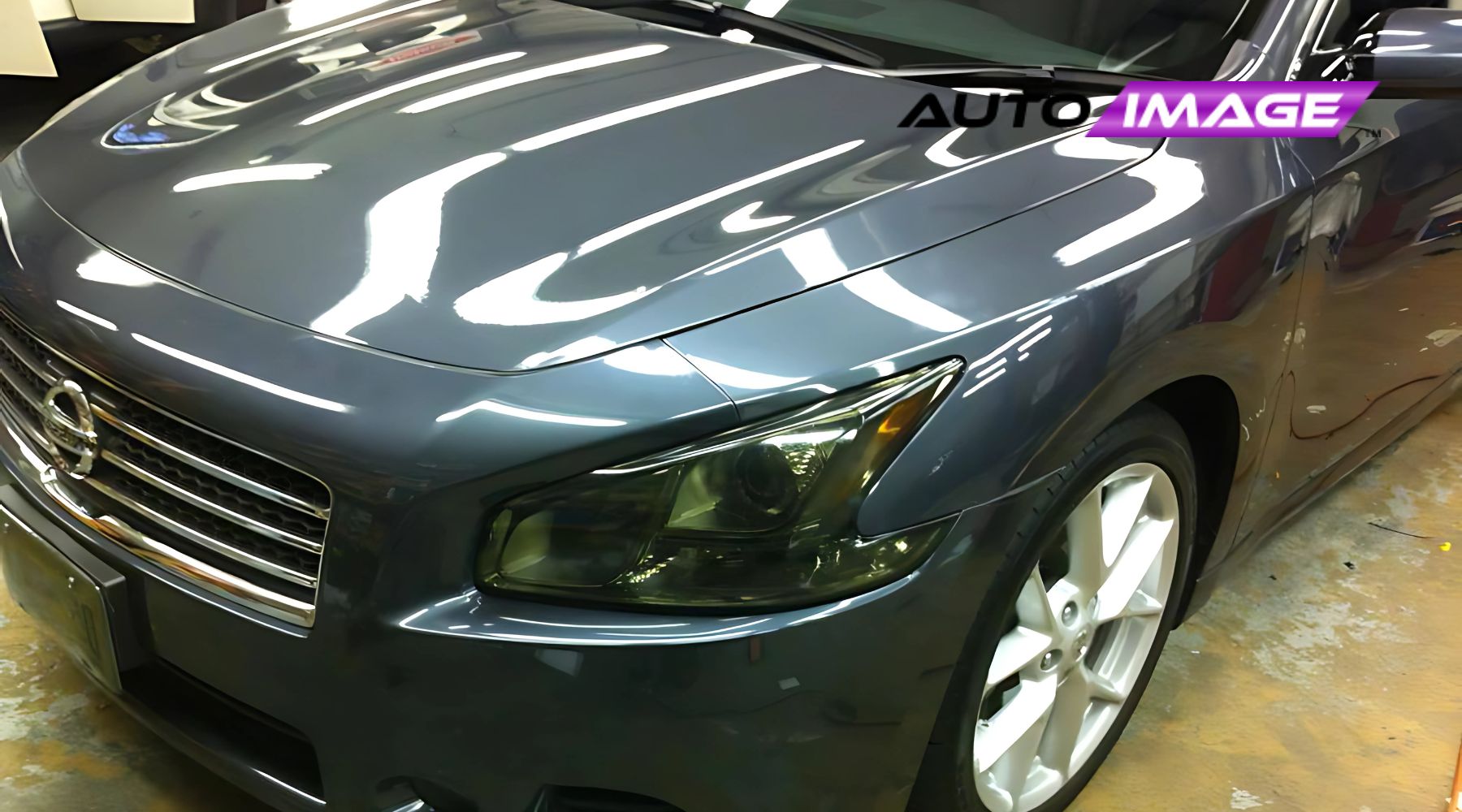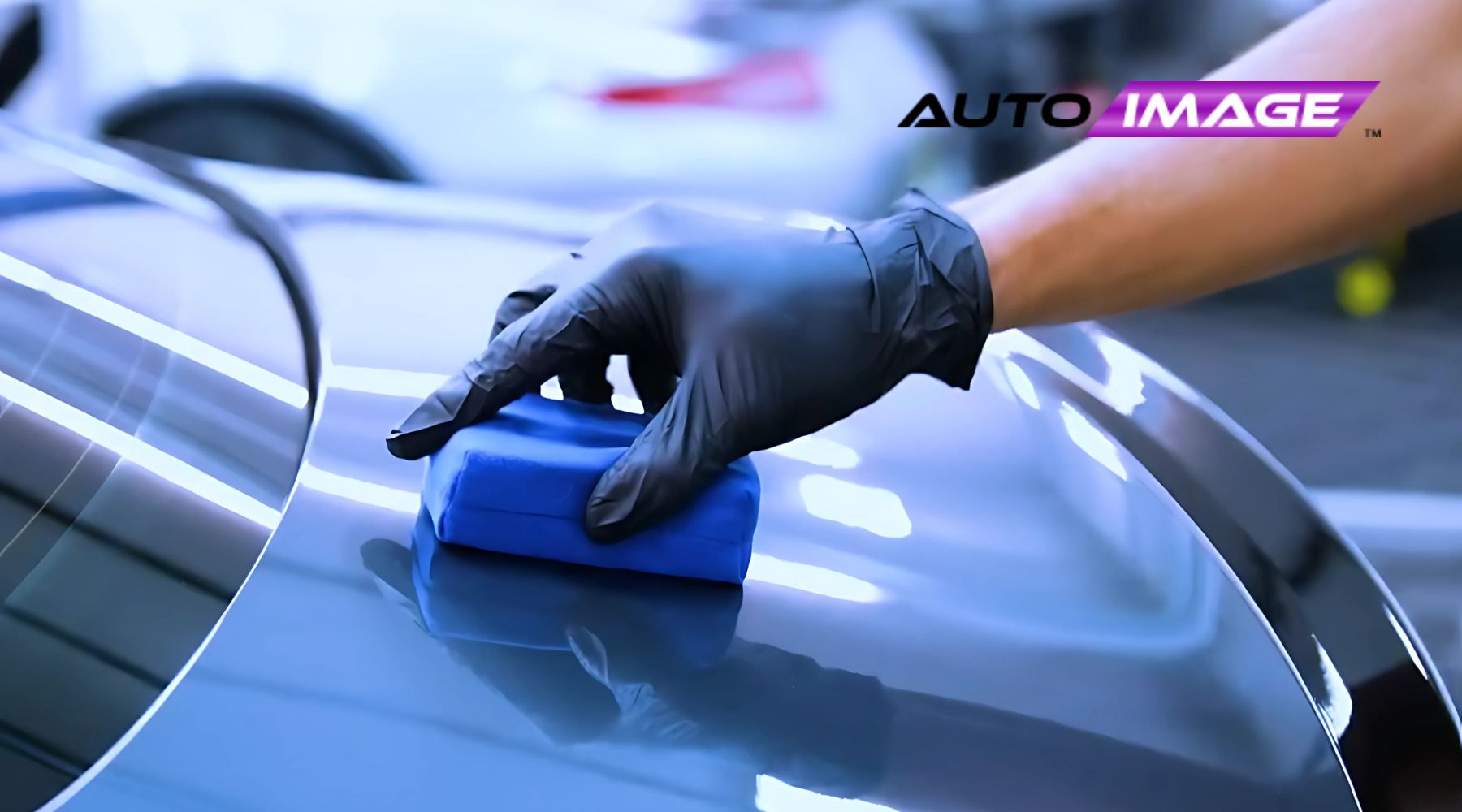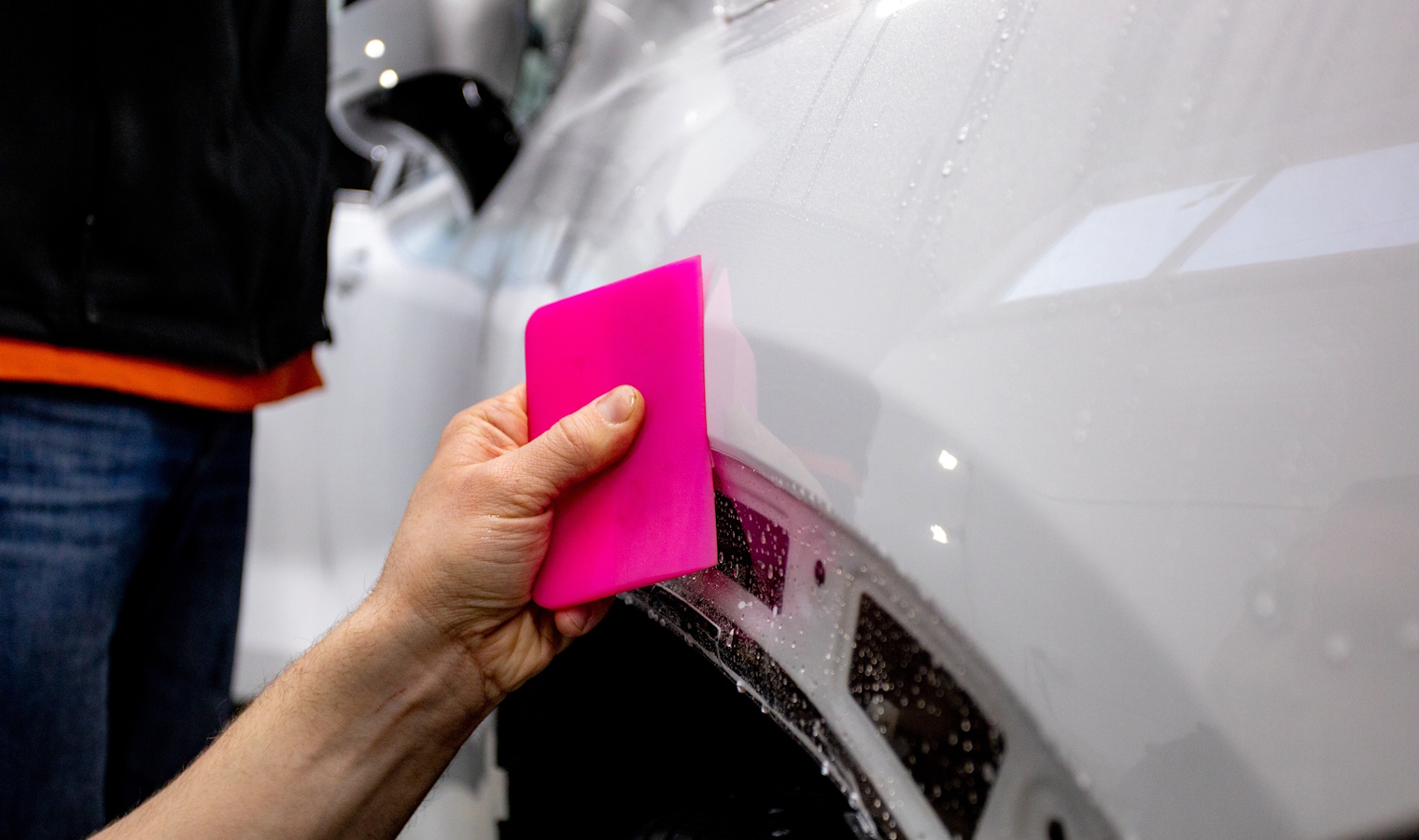New Jersey drivers face unique challenges in maintaining their vehicle’s paint. From harsh winters with road salt to hot, humid summers and environmental pollutants, keeping a car’s exterior in top shape can feel like a never-ending battle. Traditional waxing offers temporary relief, but for long-lasting protection, ceramic coating for New Jersey cars is the ultimate solution.
This advanced nano-ceramic car coating forms a durable, hydrophobic layer that repels dirt, water, and contaminants while providing superior scratch and UV resistance. But how does it work, and why is it the best option for NJ car owners? Let’s dive in.
What Is Ceramic Coating?
Ceramic coating is a liquid polymer applied to a vehicle’s paint that chemically bonds with the surface, creating an ultra-thin but robust protective layer. Unlike wax, which sits on top of the paint and wears off after a few months, ceramic coatings integrate with the paint, offering long-lasting car paint protection in NJ.
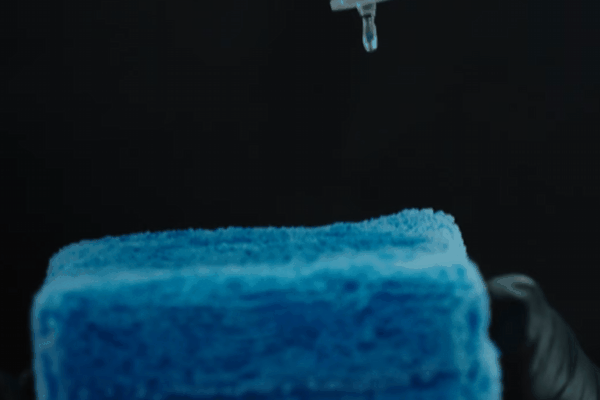
Key Features of Ceramic Coating:
✔ Hydrophobic Properties – Water and dirt bead up and roll off effortlessly.
✔ UV Protection for Vehicles in New Jersey – Prevents fading and oxidation caused by sun exposure.
✔ Scratch-Resistant Car Coating – Reduces the risk of minor scratches and swirl marks.
✔ Chemical & Contaminant Resistance – Protects against bird droppings, bug splatter, and road salt.
✔ Glossy Finish Car Treatment – Enhances the car’s shine and color depth.
How Does Ceramic Coating Work?
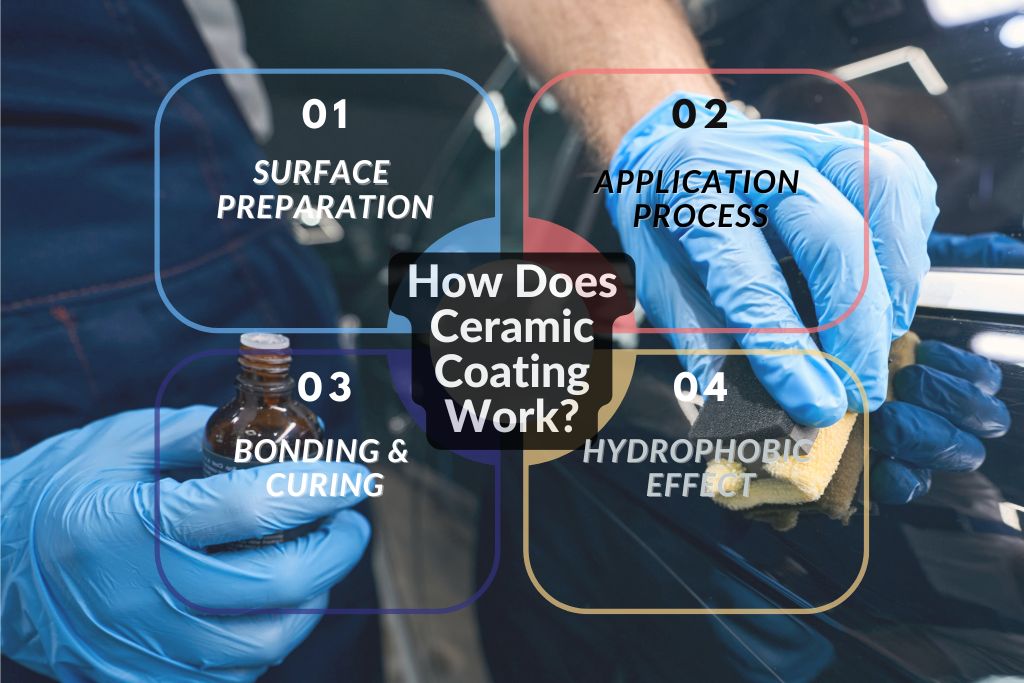
Step 1: Surface Preparation
Before applying ceramic coating, the vehicle must be meticulously cleaned and decontaminated. This involves:
✔ Hand washing the car to remove dirt and grime.
✔ Clay bar treatment to eliminate embedded contaminants.
✔ Paint correction (if necessary) to fix scratches or imperfections.
Step 2: Application Process
The ceramic coating is applied in small sections using a microfiber applicator. It spreads evenly over the surface and begins bonding with the paint.
Step 3: Bonding & Curing
As the coating cures, it forms a weather-resistant car coating that locks in protection for years. Depending on the product used, this process can take 24–48 hours.
Step 4: Hydrophobic Effect
Once fully cured, the coating creates a hydrophobic coating for cars, meaning water and dirt slide off effortlessly. This makes cleaning easier and helps maintain a spotless finish.
Why Do New Jersey Drivers Need Ceramic Coating?
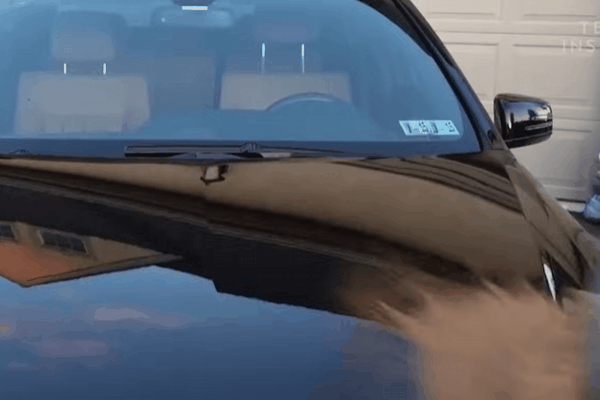
New Jersey’s diverse weather conditions and urban driving environments make automotive paint protection in NJ essential.
1. Protection Against Harsh Weather & Road Salt
✔ Winter road salt can accelerate corrosion and paint damage.
✔ High humidity can lead to oxidation and fading.
✔ Snow and rain often leave behind mineral deposits and stains.
2. Defense Against Environmental Contaminants
✔ Bird droppings, tree sap, and bug splatter contain acidic compounds that eat away at paint.
✔ Air pollution in urban areas leads to long-term oxidation.
3. UV Protection for Hot Summers
✔ Prevents sun damage and fading, especially on dark-colored vehicles.
✔ Maintains color vibrancy and reduces oxidation over time.
4. Scratch & Swirl Mark Resistance
✔ Minimizes minor scratches from washing and road debris.
✔ Reduces swirl marks caused by improper cleaning techniques.
5. Cost-Effective & Long-Lasting
✔ Traditional waxing lasts 1-3 months, while ceramic coatings last 3–5 years.
✔ Lower long-term maintenance costs as frequent waxing is no longer needed.
Cost of Ceramic Coating in New Jersey
The cost of ceramic coating in New Jersey varies based on:
✔ Vehicle size – Sedans typically cost less than SUVs or trucks.
✔ Number of layers applied – Some coatings require multiple applications.
✔ Professional vs. DIY application – Professional installation ensures optimal durability and performance.
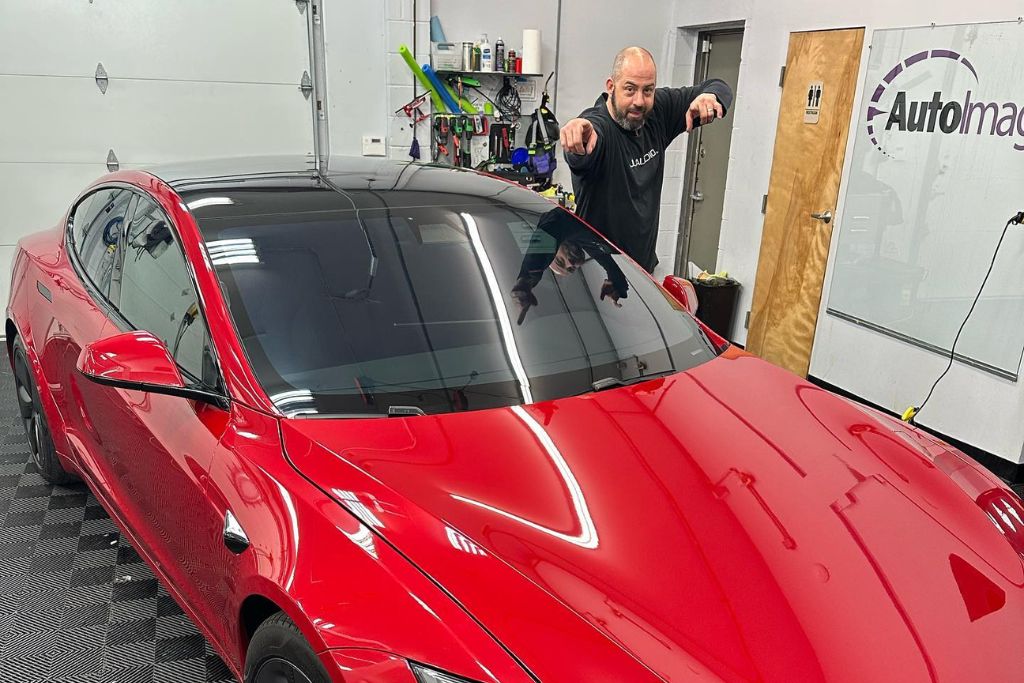
While professional ceramic coating may seem expensive upfront, it saves money in the long run by reducing the need for frequent detailing, waxing, and paint correction.
For those considering additional protection, paint protection film (PPF) is another excellent option that works well alongside ceramic coatings.
How to Maintain Ceramic Coating for Long-Lasting Protection
To maximize the lifespan of automotive ceramic protection, follow these simple maintenance tips:
✔ Wash Regularly: Use a pH-neutral shampoo and soft microfiber cloths.
✔ Avoid Automatic Car Washes: The harsh brushes can degrade the coating.
✔ Use a Two-Bucket Method: Minimizes the risk of scratching during washing.
✔ Dry with a Microfiber Towel: Prevents water spots and streaks.
✔ Inspect Annually: Some coatings require periodic top-up applications.
For additional detailing services, check out professional car detailing in NJ to ensure your ceramic coating stays in top condition.

Conclusion
Ceramic coating is a game-changer for New Jersey car owners looking for long-lasting car paint protection. It shields against harsh weather, road salt, UV rays, and environmental pollutants, all while enhancing your vehicle’s shine.
If you want to preserve your car’s appearance and resale value, investing in a professional ceramic coating is a smart decision.
Would you consider ceramic coating for your vehicle? Let us know in the comments! 🚗✨
FAQ: People Also Ask
Why should New Jersey drivers consider ceramic coating?
New Jersey’s weather conditions, road salt, and environmental pollutants can damage a car’s paint over time. Ceramic coating offers long-lasting protection against these elements, preserving the car’s appearance and value.
Can ceramic coating prevent rust?
While ceramic coatings don’t stop rust, they act as a protective barrier against moisture and road salt, significantly reducing the risk of corrosion.
How long does ceramic coating last?
With proper maintenance, ceramic coatings can last 3–5 years, depending on the product and number of layers applied.
Does ceramic coating make a car maintenance-free?
No, but it makes cleaning easier by repelling dirt, water, and grime. It also reduces the need for frequent waxing and polishing.
